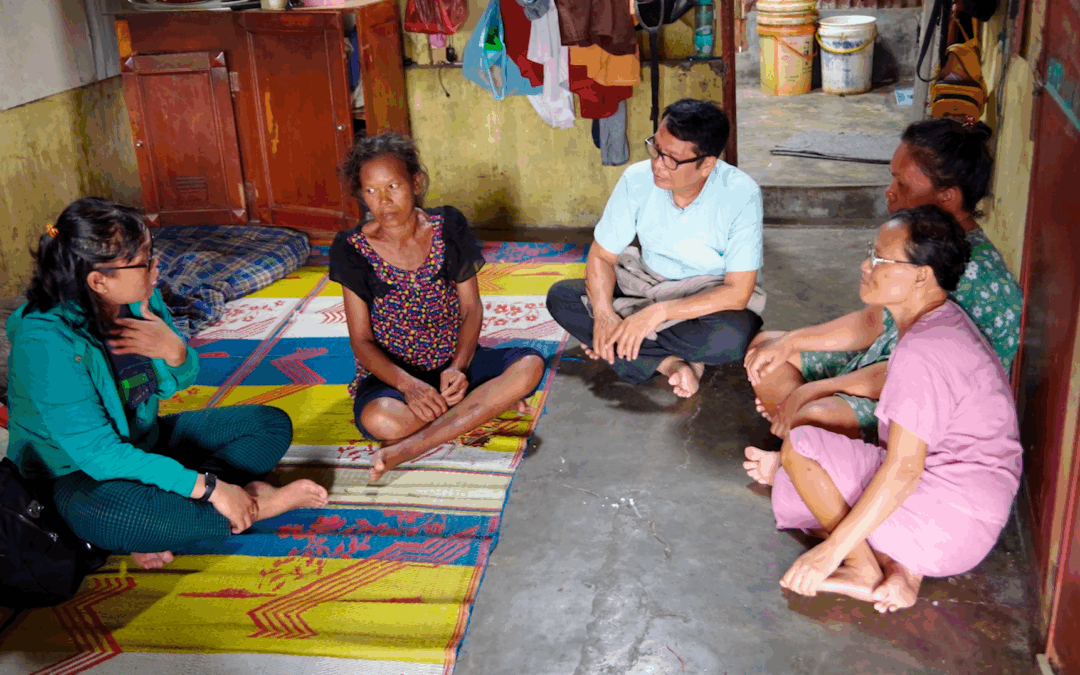
Indonesia: spreading hope
Enable subtitles and select your preferred language.

Enable subtitles and select your preferred language.
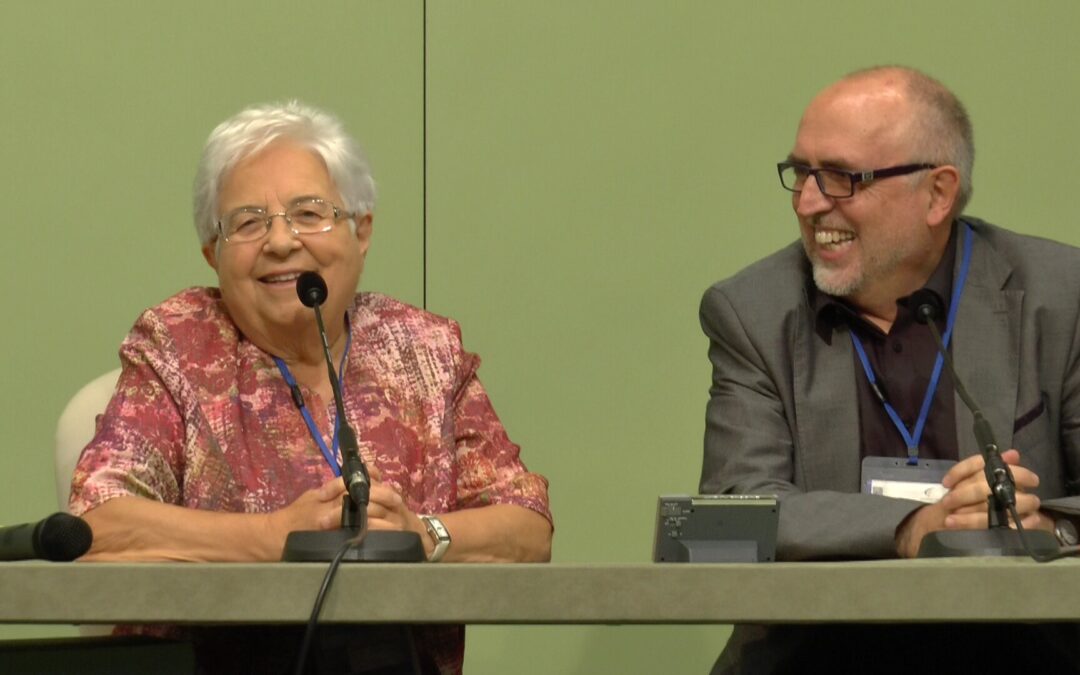
The first General Assembly of the Focolare Movement without the foundress was held in July 2008. In fact, Chiara Lubich had died a few months earlier, on the 14th of March. An air of uncertainty hung over the already emotional and question-filled atmosphere as to who should succeed Chiara in leading the Movement. It seemed obvious to think of Chiara’s first companions, now elderly, but at least some of them were still capable of leading this first post-foundation phase.
During the first session of the Assembly, there was a talk from a legal perspective on a topic relevant to the Assembly given by Carlos Clariá, an Argentinian lawyer and general councillor, and Maria Voce, for many years secretary to the central delegate Gisella Cagliari. I remember that I was sitting next to the well-known theologian Piero Coda. When they concluded their talk, I told him rather boldly: “Here is our new president”. The truth was that the way she had explained things had impressed me greatly.
Maria Voce (Emmaus) was elected on the third ballot, not without a certain “suspense”. A new stage was beginning for the Work of Mary and I, too, was elected as a councillor.
One afternoon, after the elections, as we were leaving the Mariapolis Centre in Castelgandolfo, Emmaus approached me and said more or less these words: “I thought of entrusting you with the aspect of studies and culture in the new council. You are a man of thought, and I always liked the annual reports you wrote when you were responsible for a region in Latin America.” During the following six years, my relationship with her was very simple.
At the 2014 Assembly, Emmaus was re-elected, and the participants placed their trust in me as Co-President. Since then, our relationship has strengthened enormously, without losing its simplicity. I remember that in the beginning I felt a certain apprehension at the idea of having to work side by side with a president who belonged to the generation immediately following the first one, but this feeling was short-lived. I always perceived great respect and appreciation from her, which gave me a lot of freedom. I would arrive with a bunch of new ideas, and she would support me with her wisdom and experience. In our joint presentations we would prepare the essentials together and would complement each other in a simple way. I once told her, “As opposed to what you might think, I only feel confident in expressing some creative ideas when you are by my side.” We made long and important visits to India and China, where I witnessed her ability to penetrate the most intricate situations and relate to very different key personalities.
Maria Voce, Emmaus, will go down in the history of the Focolare Movement as the first president of the post-Chiara Lubich era. If we think that when she took up her role, many of Chiara’s first companions were still alive. We can understand the “spiritual resilience” with which she carried out her work in those early years; not because they were difficult people, but simply because they were the first ones, the arms of the foundress, people who in some way had been part of the founding charism.
Emmaus will go down in the history of the Focolare Movement for having been the president of the “new set-up”, the first innovative-organisational step of the Movement in the post-Chiara era, in creative faithfulness to the charism. In her first mandate, while Chiara’s absence was felt and could have caused discouragement, Emmaus travelled the world to strengthen the members and adherents of the Focolare communities in their commitment to a more fraternal and united world – in line with the charism of the foundress. In her second mandate, she began to prepare the Movement for the inevitable “crisis” phase appearing on the horizon, which Pope Francis identified as a great opportunity. And the Argentine Pope held her in great esteem. He pointed this out to her on every occasion. This demonstrates another of her characteristics: her ecclesial spirit.
I have always admired in Emmaus her simplicity, her inner freedom, her determination and her ability to discern, in which she was greatly aided by a legal background that she made her own.
Maria Voce will go down in the history of the Movement as “Emmaus”, to evoke the centrality of Jesus in the midst of his people. This was an absolutely non-negotiable principle for her.
Thank you, Emmaus, for saying a solemn “yes” at the most difficult time in our still short history. Mary will have taken you into her arms, presented you to her Son and together they will have carried you to the bosom of the Father who was the perennial source of your inspiration.
Jesús Morán
Co-President of the Focolare Movement
Photo @ CSC Audiovisivi
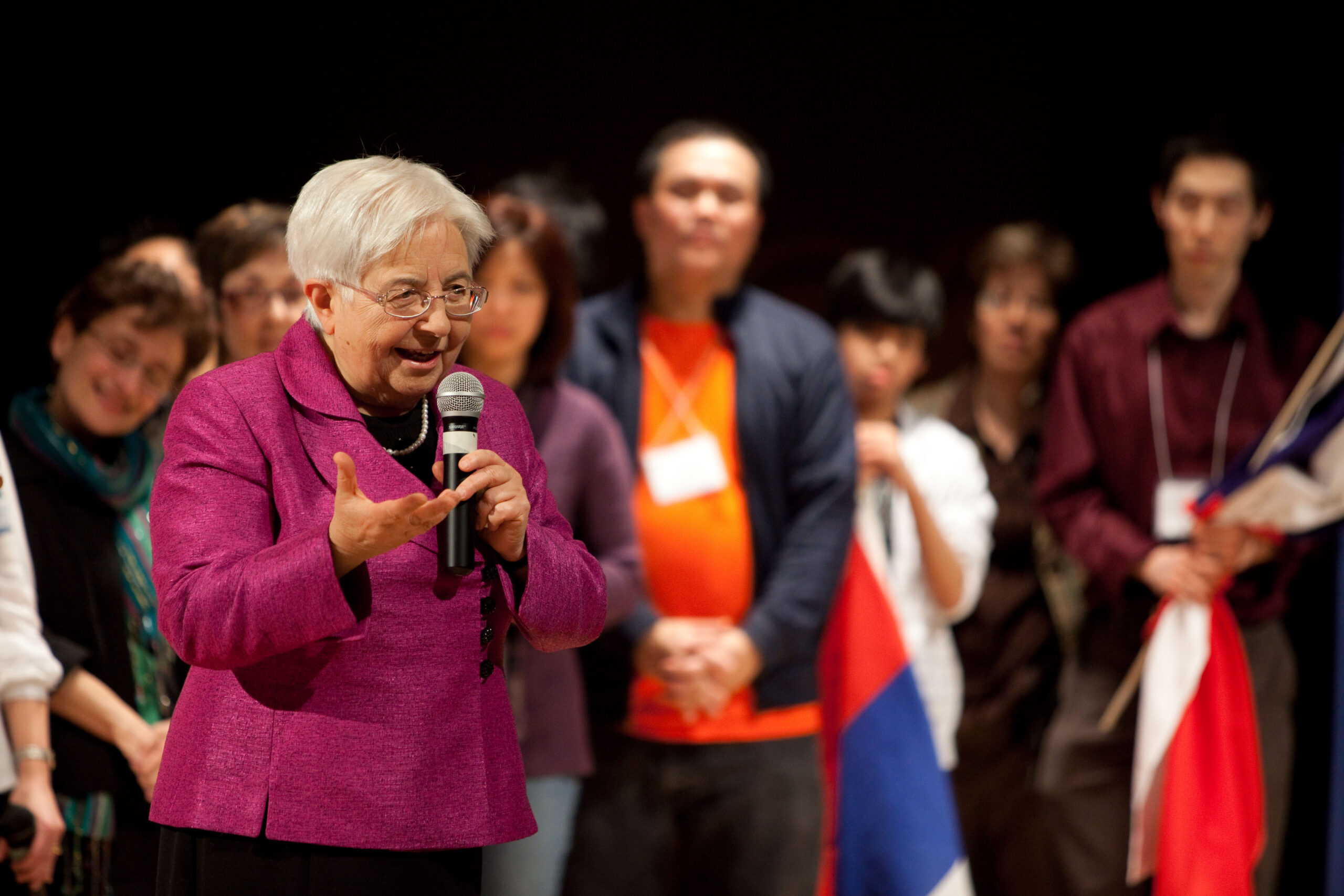
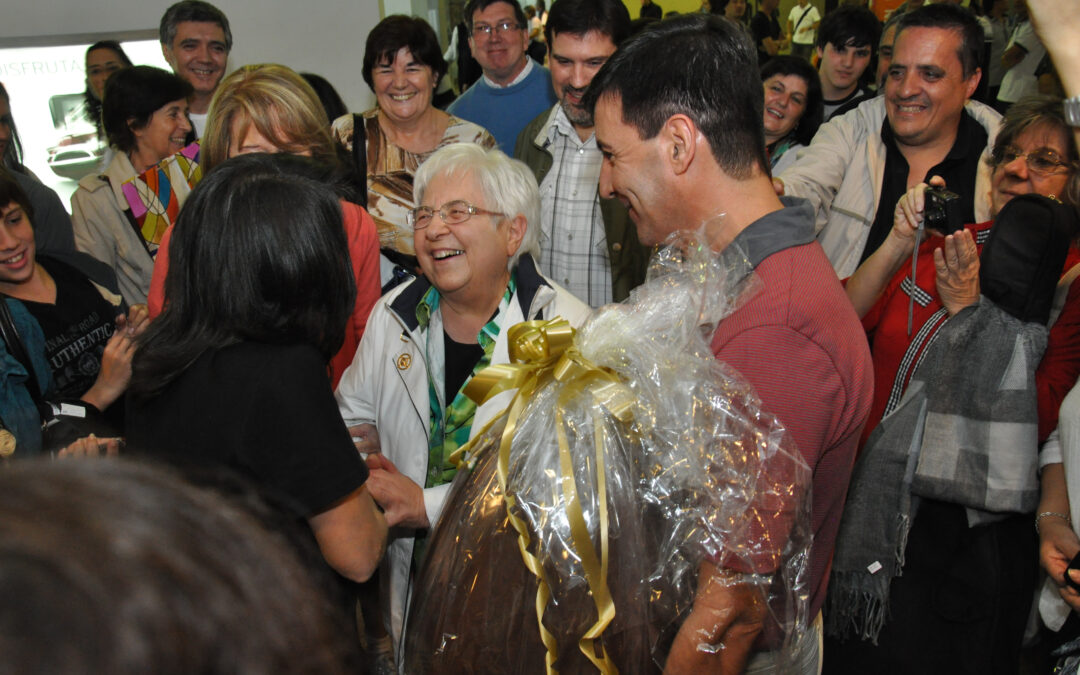
Maria Voce, the first president of the Focolare Movement (Work of Mary) after the foundress, Chiara Lubich, died yesterday at the age of 87 at home, in Rocca di Papa (Italy), surrounded by the affection and prayers of many.
This was announced yesterday evening by Margaret Karram, the current President to all those who belong to the Focolare Movement in the world.
In a message, Margaret went on to express the immense suffering that Maria Voce’s departure has brought about. She also expressed the fraternal and filial bond that bound them both together. “As the first president of the Focolare Movement after our foundress, she was able to take ahead with intelligence, farsightedness and the necessary determination the difficult transition of our Movement from its foundation to the post-foundation phase. She was able to combine her inspiring faithfulness to the Charism of Unity with the courage to deal with the many challenges of a worldwide association like ours, which operates on so many levels of human, social and institutional life.
Maria Voce received the name “Emmaus” as a life programme from Chiara Lubich, and it also became the programme of her government: to journey together, in a synodal way – and regardless of the questions and uncertainties that may emerge along the way, trusting in the presence of God in the midst of his people.
When I succeeded her as president of the Focolare Movement in 2021, she always accompanied me with a discreet but ever-present closeness and with her advice so full of Wisdom. In addition to her spiritual, theological and juridical preparation, she was also blessed with a deep and welcoming humanity and an engaging humour that was always respectful. Her human and sapiential calibre has been acknowledged by the most varied religious and civil authorities: from Pope Benedict XVI and Pope Francis; from the leaders of the various Churches to representatives of other religions and cultures.
A few hours before her departure to the next life, Jesús Morán and I were able to visit her for one last time. She was serene. I am consoled by the thought that waiting for her in heaven is the Virgin Mary, to whom she was closely linked by a very deep, and I would say existential, relationship.”
Jesús Morán, who lived alongside Maria Voce during the first six years of his service as Co-President of the Focolare Movement, recognises that with her election a new stage has begun for the Focolare Movement. He writes: “Emmaus, will go down in the history of the Movement not only as the first president of the post-Chiara Lubich phase, but also as the one who took the first innovative-organisational step of the Movement in the post-foundation era, in perfect creative faithfulness to the charism. In her first mandate, while Chiara’s absence was felt and could have caused discouragement, Emmaus travelled the world to strengthen the members and adherents of the Focolare communities in their commitment to a more fraternal and united world – in line with the charism of the foundress. In her second mandate, she began to prepare the Movement for the inevitable “crisis” phase appearing on the horizon, which Pope Francis identified as a great opportunity. And the Argentine Pope held her in great esteem. He pointed this out to her on every occasion. This demonstrates another of her characteristics: her ecclesial spirit.
I have always admired in Emmaus her simplicity, her inner freedom, her determination and her ability to discern, in which she was greatly aided by a legal background that she made her own.
Thank you, Emmaus, for saying a solemn “yes” at the most difficult time in our still short history. Mary will have taken you into her arms, presented you to her Son and together they will have carried you to the bosom of the Father who was the perennial source of your inspiration.”
I funerali si terranno lunedì prossimo, 23 giugno 2025, alle ore 15.00 presso il Centro internazionale dei Focolari a Rocca di Papa (Roma), via di Frascati, 306 – Rocca di Papa (Roma).(*)
Stefania Tanesini
Biographical information
Maria Voce was born in Ajello Calabro (Cosenza – Italy) on the 16th of July 1937, the first of seven children. Her father was a doctor and her mother, a housewife. In her final year of university studies in law in Rome (1959), she met a group of young focolarini at university and began to follow their spirituality. After finishing her studies, she practised law in Cosenza, becoming the first woman lawyer in the city’s court. She later studied theology and canon law.
In 1963, she was called by God to follow Chiara Lubich’s path, to which she responded with immediacy. In the Movement, Maria Voce is known as “Emmaus”, a name that refers to the well-known episode of the two disciples walking with Jesus after the resurrection. She herself describes how Chiara proposed it to her: “Chiara, confirmed an intuition that I had strongly felt within: that my life was to be spent so that those who had the opportunity to meet me would experience Jesus in the midst.” From that moment on, her commitment was to build bridges of unity, to the point of deserving God’s presence among people.
From 1964 to 1972 she was in the Focolare communities in Sicily (Italy) in Syracuse and Catania and from 1972 to 1978 she was part of Chiara Lubich’s personal secretariat.
In 1977 Chiara Lubich made an important visit to Istanbul (Turkey) where for years she had cultivated a special relationship with the Ecumenical Patriarchate of Constantinople. During those years, Maria Voce was in the focolare in that city, and she recalls: “It was a strong experience, both for the precious contacts with the various Churches, with Islam, and also because we felt that only Jesus among us made us strong when faced with the many problems of that land.”
In Istanbul, she established ecumenical relationships with the then Patriarch of Constantinople Demetrius I and numerous Metropolitans, including the current Patriarch Bartholomew I, as well as representatives of the various Churches.
In 1988 Chiara asked Emmaus to return to Italy to work at the International Centre in Rocca di Papa and for the Abbà school, the Interdisciplinary Study Centre of the Focolare Movement, of which she became a member in 1995 as an expert in Law. Since the year 2000 she has also been co-responsible for the International Commission of “Communion and Law”, a network of professionals and scholars involved in the field of Justice. From 2002 to 2007 she collaborated directly with Chiara in updating the General Statutes of the Movement.
On the 7th of July 2008, a few months after Chiara Lubich’s death, she was elected president of the Focolare Movement, reappointed for a second term on the 12th of September 2014. The style of her presidency has always been to “prioritise relationships” and to work towards the goal for which the Movement was born: to seek unity at all levels, in all fields, by following the path of dialogue. She has repeatedly emphasised how important dialogue is. “If there is an extremism of Violence,” she said in 2015 at the United Nations, in New York, “now we are responding in the same radical way, but structured differently, that is, with the extremism of dialogue.”
Numerous visits were made to all the continents to meet with the Movement’s communities spread around the world and to maintain contacts with civil and ecclesiastical, cultural and political, ecumenical and interreligious leaders. These were important steps to strengthen the bonds of friendship and collaboration established by the Focolare Movement and to encourage developments on the path of fraternity between peoples.
During her presidency, both with Pope Benedict XVI and Pope Francis, Maria Voce had meetings and audiences where expressions of esteem and fraternal affection emerged on both sides. On the 23rd of April 2010, Pope Benedict XVI received her in private audience. Referring to the spirituality of the Focolare Movement, the Pope spoke of a “charism that builds bridges, that creates unity” and invited the Focolare Movement to continue in its activities with ever deeper love and in striving for holiness. In October 2008, she participated and spoke at the Synod of Bishops on “The Word of God in the life and mission of the Church”. On the 24th of November 2009 Pope Benedict appointed her as Consultor of the Pontifical Council for the Laity and on the 7th of December 2011 as Consultor of the Pontifical Council for Promoting the New Evangelisation.
On the 13th of September 2013, Pope Francis received her in audience together with the then Co-President Giancarlo Faletti. About that moment, Emmaus remembers, “He immediately received us with a great welcome. He made me feel at home. I felt a great joy, as if I were standing in front of a father, but first and foremost he was a brother. I felt like his sister, and this sense has always remained.”
And on another occasion, she said, “Pope Francis has always encouraged us to go ahead, to welcome the signs of the times in order to make the charism relevant today, received for the good of many people and giving joyful witness to it”. One of these occasions was the Pope’s visit to the international little town of Loppiano (Florence, Italy) in 2018. Maria Voce was there to welcome him: “Holy Father, we have a very high goal, we want to “aim high”. We would like to make mutual love the law of coexistence, which means experiencing the joy of the Gospel and feeling that we are protagonists of a new page of history.”

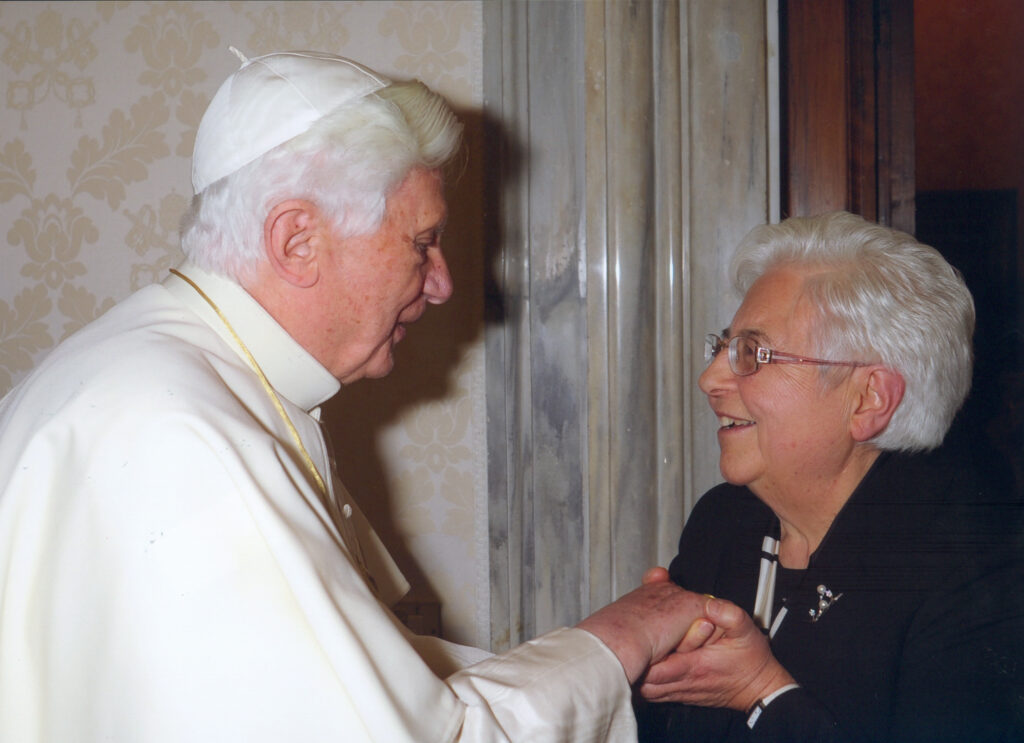
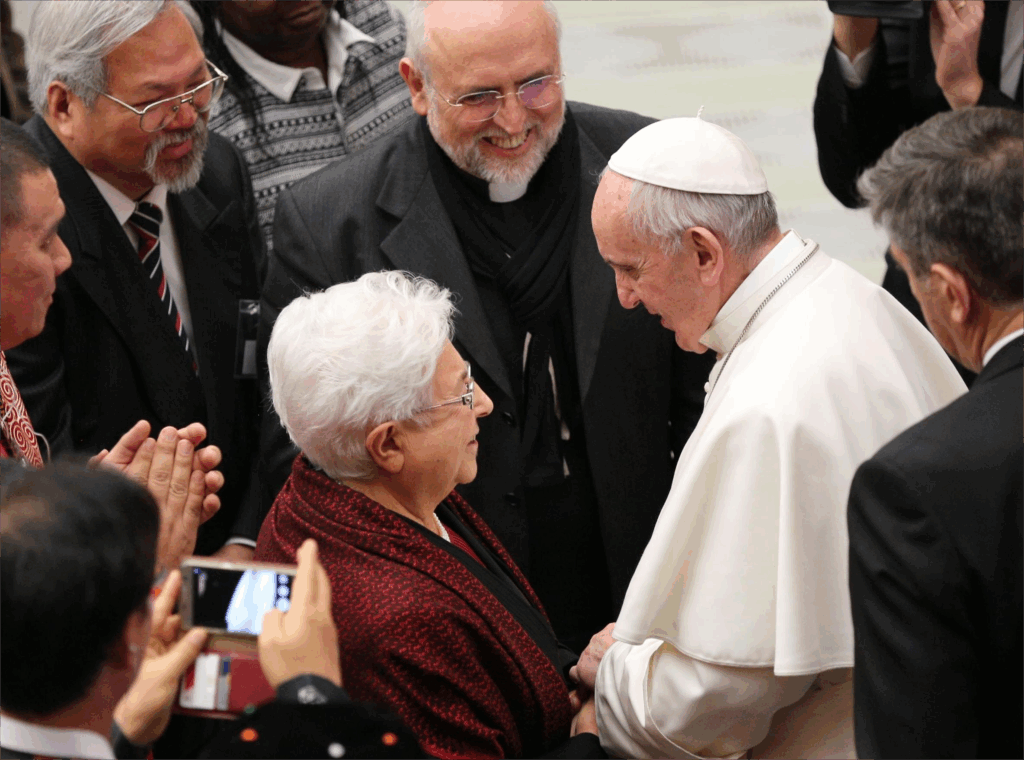
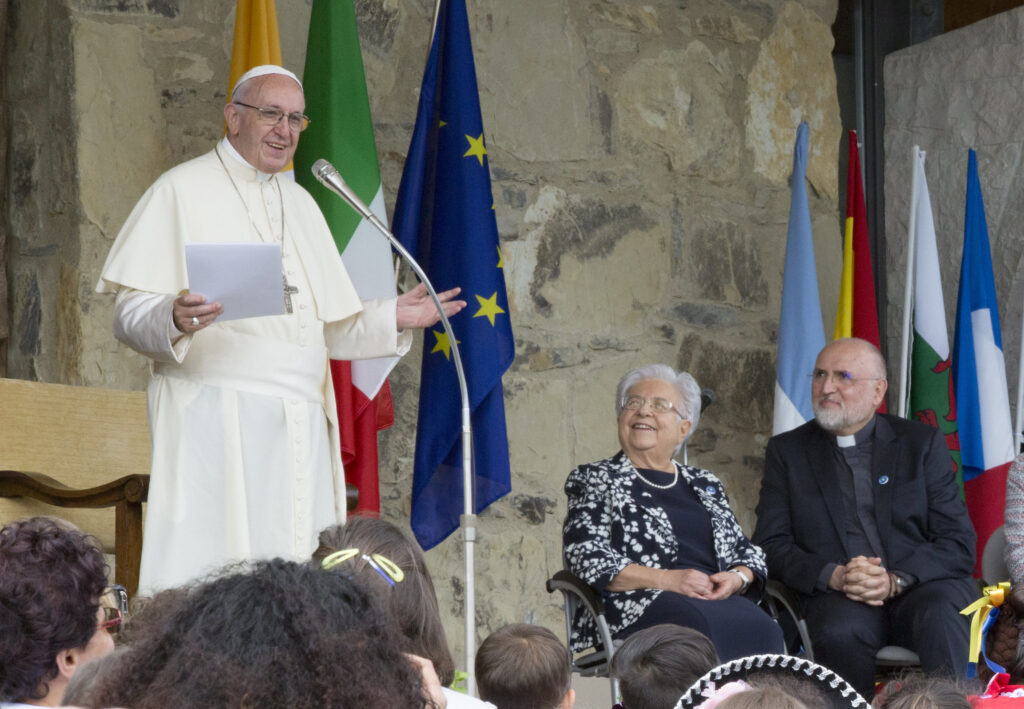
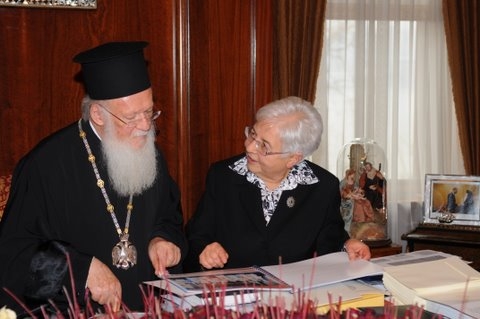
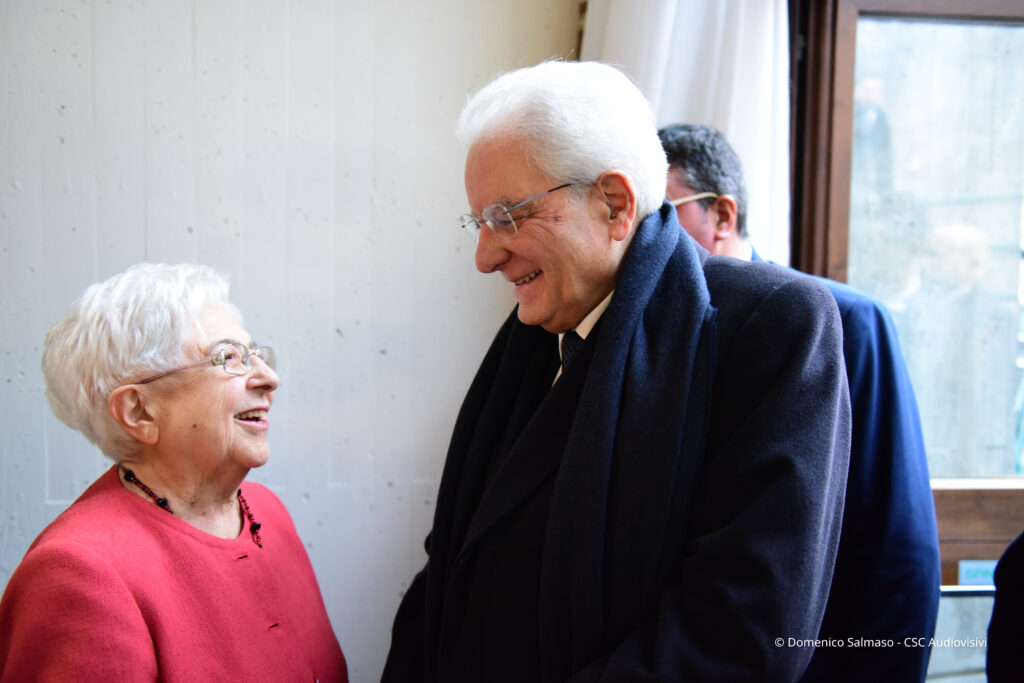
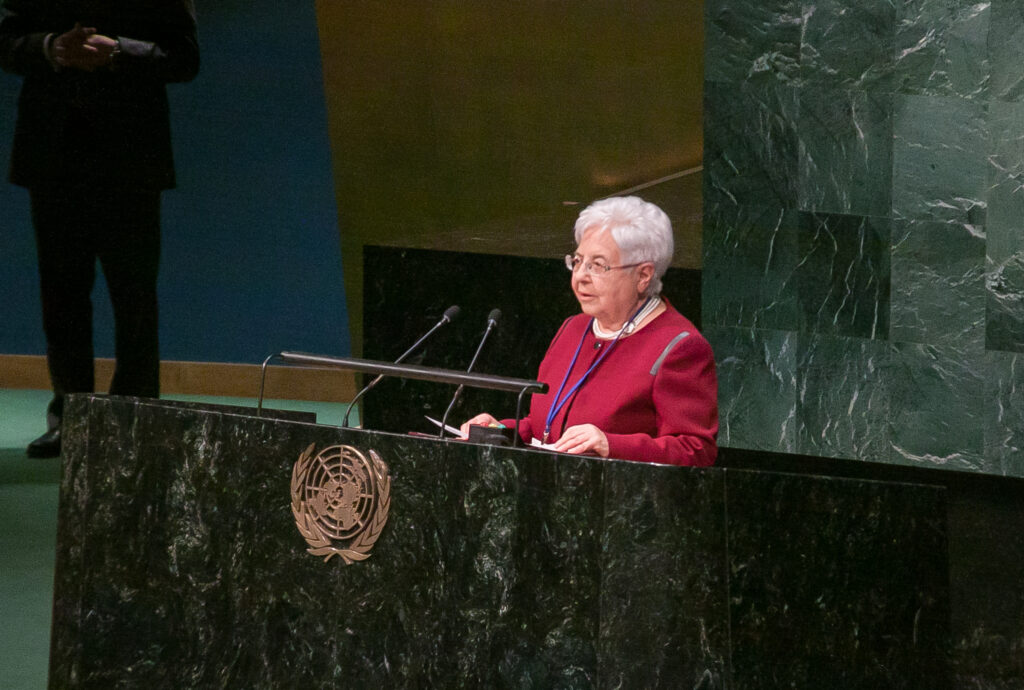
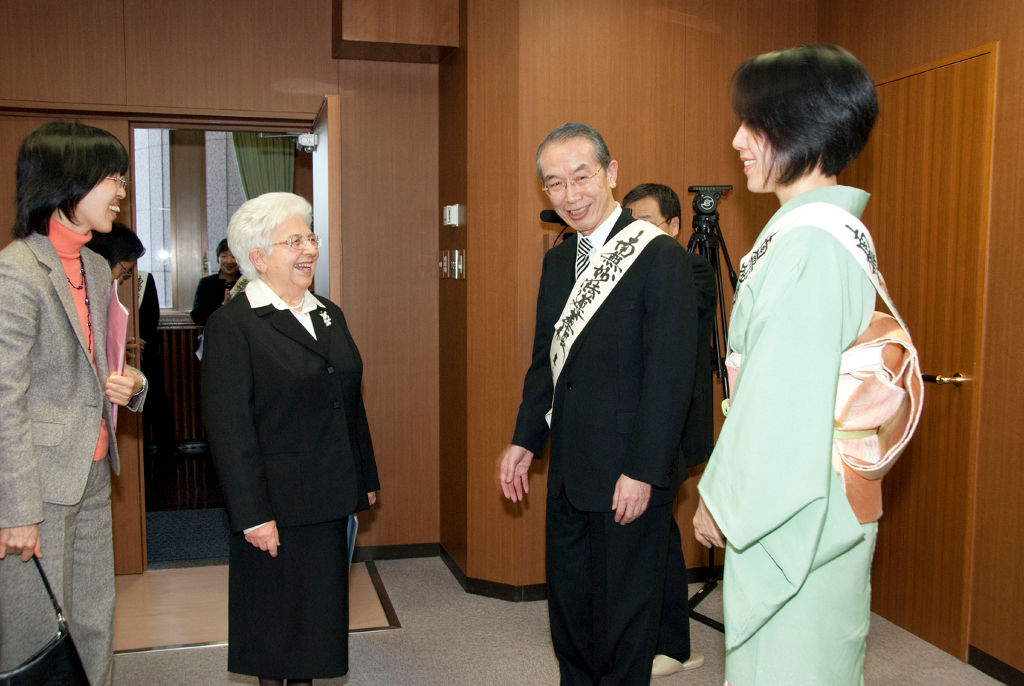
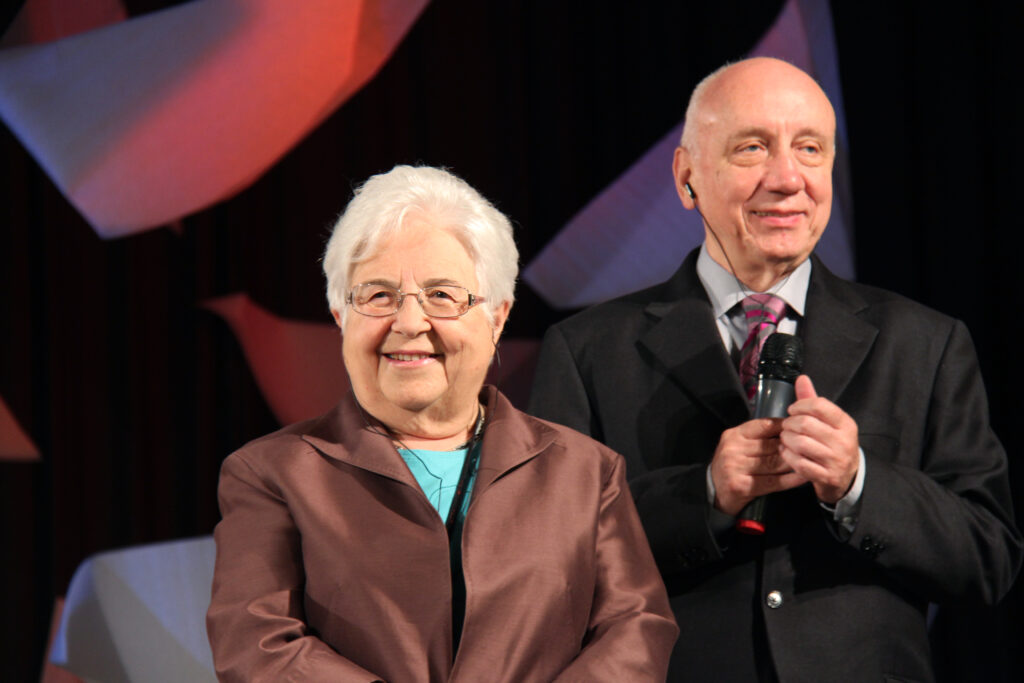
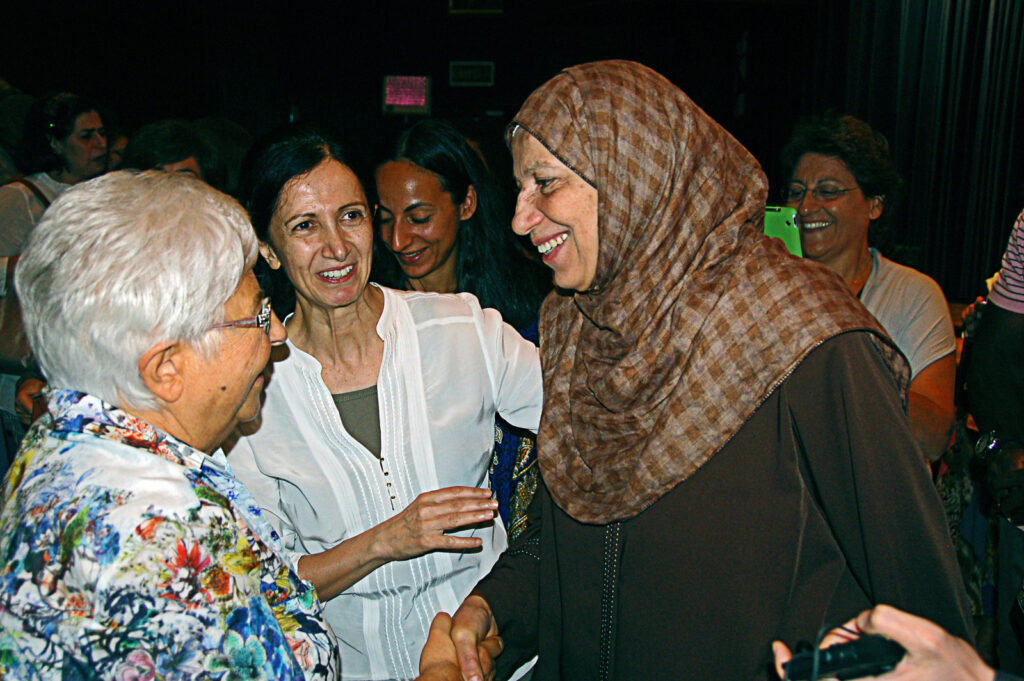
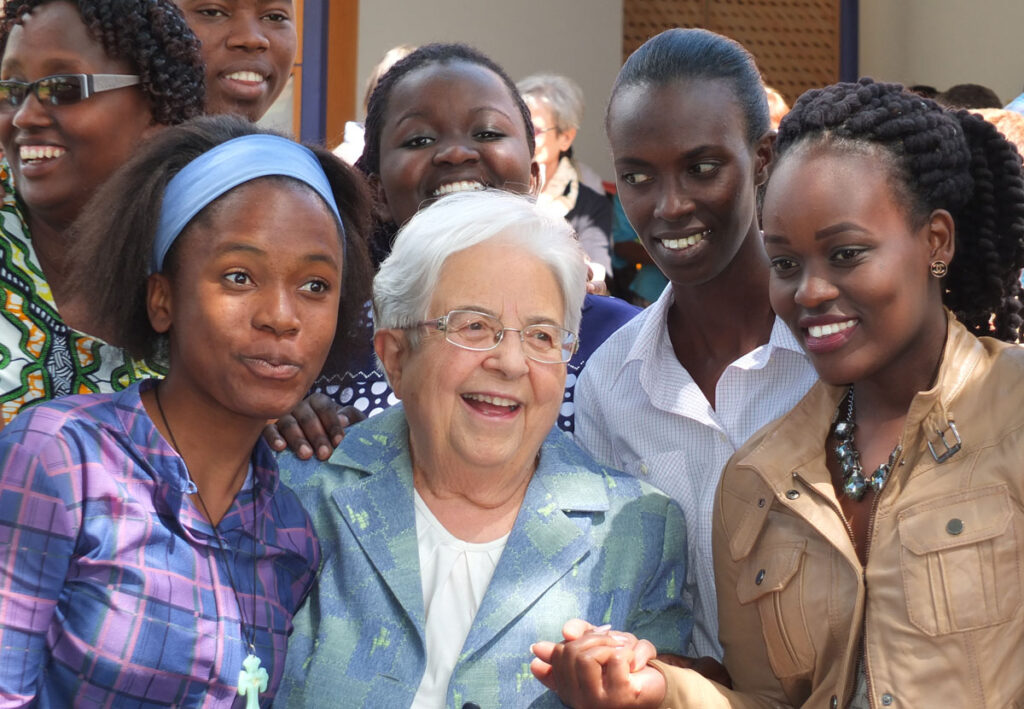
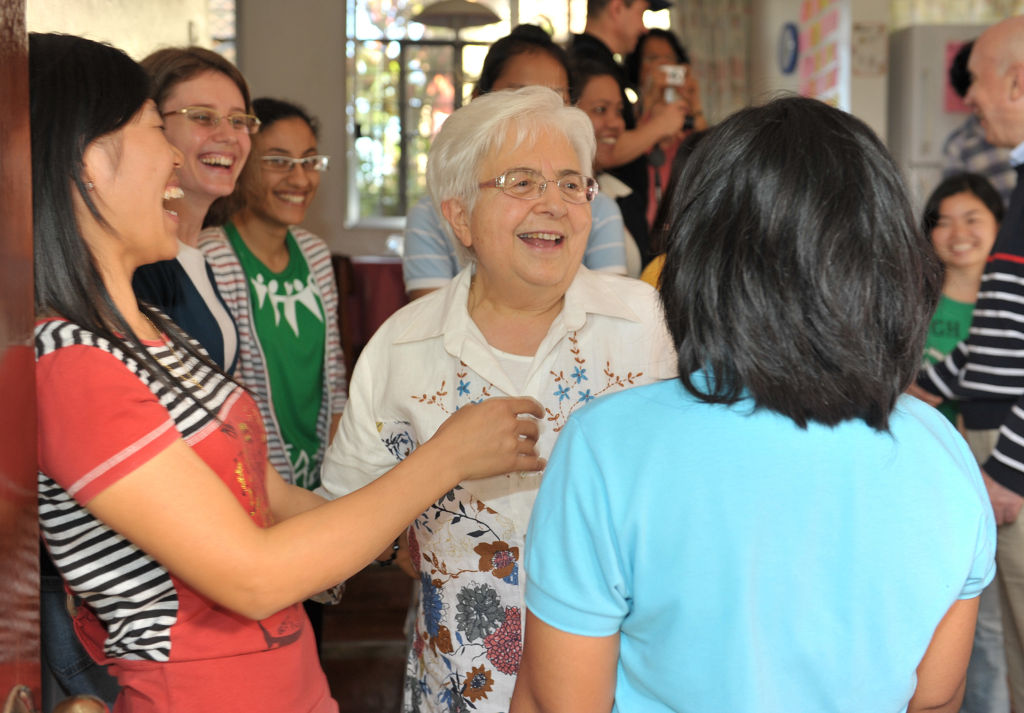
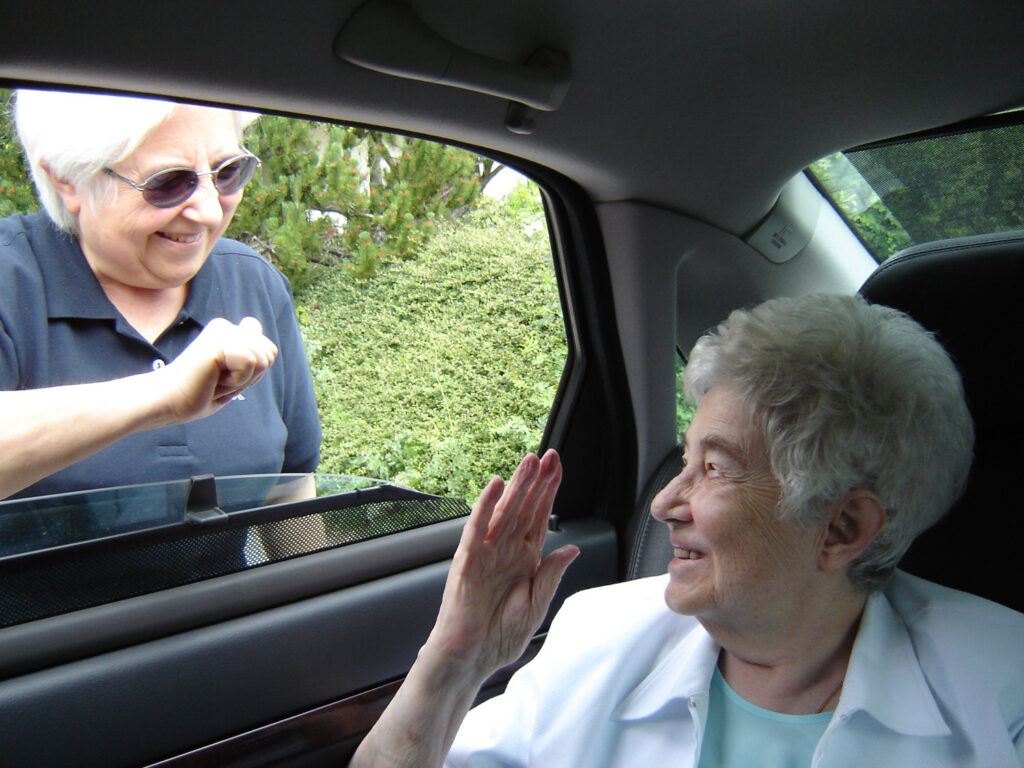
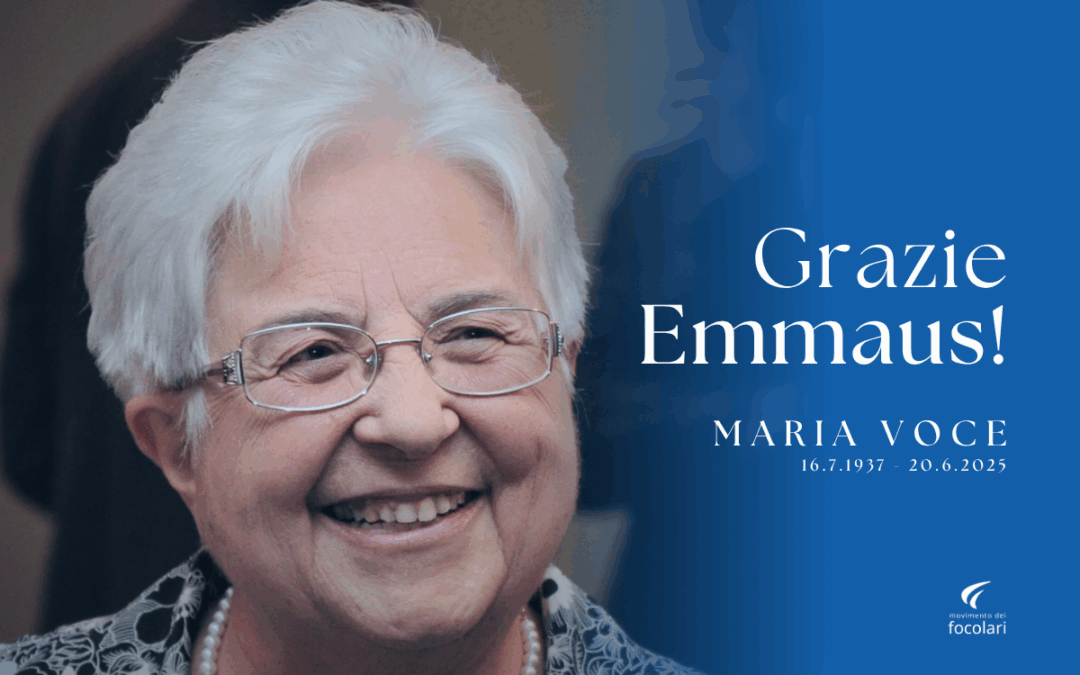
Dear everyone,
I am writing to you with great sorrow and profound emotion to inform you that today, at 5:22 p.m., God called to Himself our Emmaus, Maria Voce, the first president of the Focolare Movement after Chiara Lubich.
She concluded her holy journey in Rocca di Papa, in her home, surrounded by the care and love of the focolarine of her focolare and the prayers of us all. Today, in the early afternoon, Jesús and I were able to visit her for one last time. She was serene.
A great affection and immense esteem bind me to her because of her donation to God in the Work of Mary right to the end.
Since my election as President, her closeness, which was so discreet but ever present, always accompanied me, supporting me with her advice so full of Wisdom. She was present on the most varied occasions, celebrations, anniversaries, journeys; she assured me of her prayers, the offering of her life and often she would send me a gift, a flower or one of her poems.
She received the name “Emmaus” from Chiara, recalling the experience of the Risen Lord walking with us. This name characterised her whole life. Indeed, she affirmed: “How do we do the Work of God? With Jesus in the midst!”
Her inspiring faithfulness to Chiara’s charism, her courage in facing numerous challenges, and her belief in unity, in communion, remain etched in our hearts.
Her human, spiritual and sapiential calibre has been acknowledged by the most varied religious and civil authorities: from Pope Benedict XVI and Pope Francis; from the leaders of the various Churches to representatives of other religions and cultures.
Her funeral will be held on Monday, 23rd of June at 3.00 p.m. (Italian time) at the International Centre in Rocca di Papa.
Let us remain united in the love that binds Heaven and earth!
Margaret Karram
Rocca di Papa, 20 June 2025